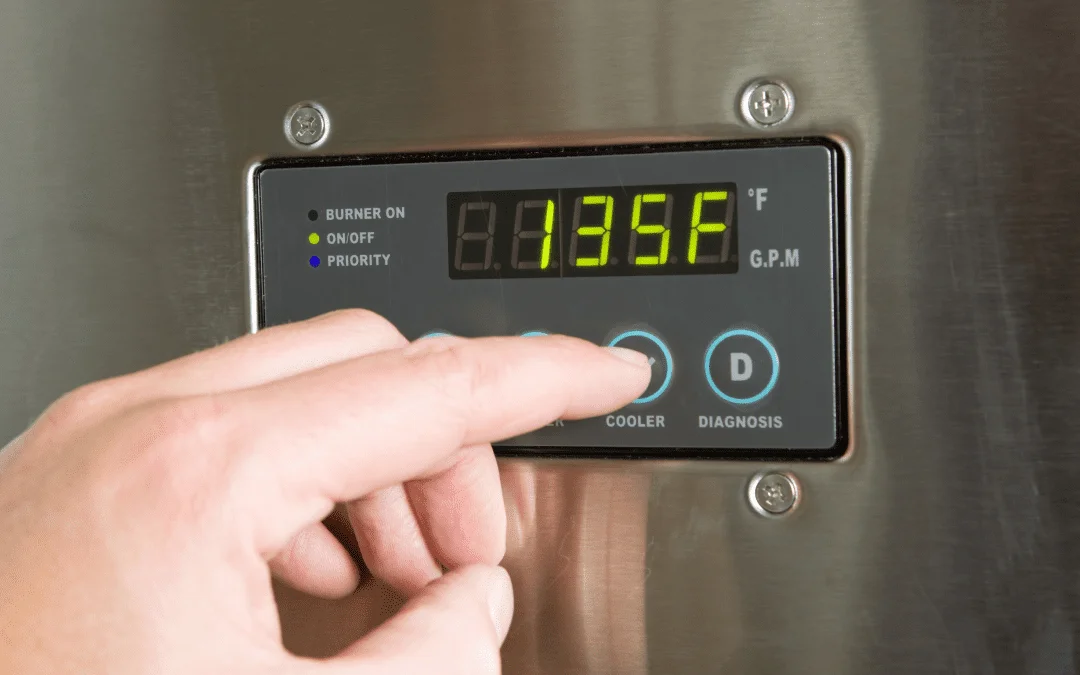On-demand water heaters, commonly referred to as tankless water heaters, have grown in popularity as an alternative to conventional tank-based types in recent years. Instead of keeping a significant quantity of hot water in a tank, they function by heating water as it passes through the device.
Although they have many advantages, such as energy efficiency and space-saving design, there are some drawbacks to consider. Anglin Plumbing Service always ensures that the appropriate water heater system is installed in your home. This article will help you determine if tankless water heaters are the best choice for your home by examining both their advantages and disadvantages.
Benefits of Instant Hot Water
The following are some of the top benefits of using tankless hot water:
- High performance
According to the Department of Energy, on-demand heaters can be between 8% and 50% more energy-efficient than traditional storage tank options. Tankless water heaters are generally more energy-efficient than conventional storage tank options. The main reason for this is because a tankless water system does not require a sizable storage tank, which is prone to standby energy losses (heat loss from the water over time as it sits idle in your tank).
Your specific water heater setup’s efficiency rating will vary depending on a variety of elements, such as usage patterns and system make-up. For instance, employing point-of-use tankless water heaters instead of a whole-house system saves more energy.
- Long-term investments
On-demand hot water systems typically help you save money on your water heating costs over the course of the system, depending on the type of tankless water system you install and the amount to which you need to prepare your home’s wiring, water lines, and gas connections.
Tankless heaters can have significant upfront expenditures, but they are more durable than traditional water storage heaters, and most property owners can anticipate a payback period of between 10 and 25 years. In general, electric tankless models have faster payback periods than gas tankless models.
- Environmentally Friendly
Compared to storage systems, tankless water heaters use less fuel to heat the same volume of water. Tankless heater efficiency can range from 80 to 99 percent, whereas typical storage tank solutions have efficiencies between 40 and 60 percent. This means that tankless systems can produce nearly one unit of heat from one unit of fuel. Tankless hot water heaters are a more environmentally responsible solution for water heating since they use less fuel, which lowers your environmental impact.
Cons of Instantaneous Hot Water
When assessing your heating and cooling options, bear the following drawbacks of installing a tankless water heater in mind:
- A Low Flow Rate
One central whole-house tankless water heater will struggle to keep everything hot if you intend to run multiple hot water-using equipment at once. You’ll either need to build a few point-of-use systems or go with a storage tank heater for properties that require more than 40 or so gallons of hot water per day.
- High Initial Outlay
A tankless water heater costs more up front than conventional storage tank heaters from a financial standpoint. Up to three times as much may be initially paid for an on-demand water heater as opposed to a tank water heater.
- A Lot of Setup Effort can be Necessary
In order to accommodate a tankless system in your house, you may need to spend more money on updating and/or enlarging your water pipes, gas pipes (for gas units), and electrical wiring in addition to the high upfront cost of tankless hot water equipment. To properly set you up to go tankless, you might need to hire plumbers or electricians, which will increase the upfront cost.
Finally, it’s important to keep in mind that tankless water heaters have both benefits and drawbacks when deciding whether to switch from a conventional tank-based model. Although endless hot water, space-saving designs, and energy efficiency are all appealing features, not everyone may find the higher upfront cost and potential flow rate issues to be ideal.
The choice will ultimately depend on the particular requirements, financial situation, and tastes of your household. We hope that this article has given you useful information that will allow you to choose the best water heating system for your house with confidence.

